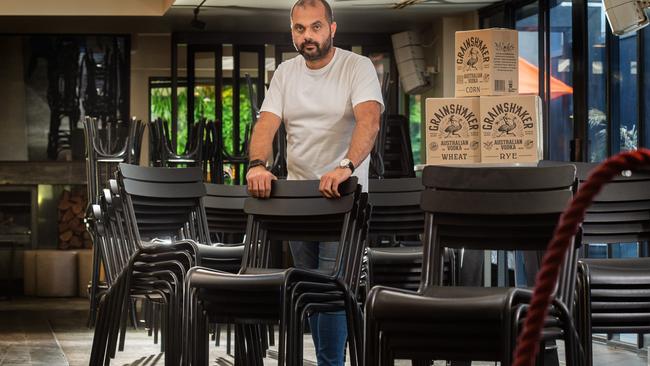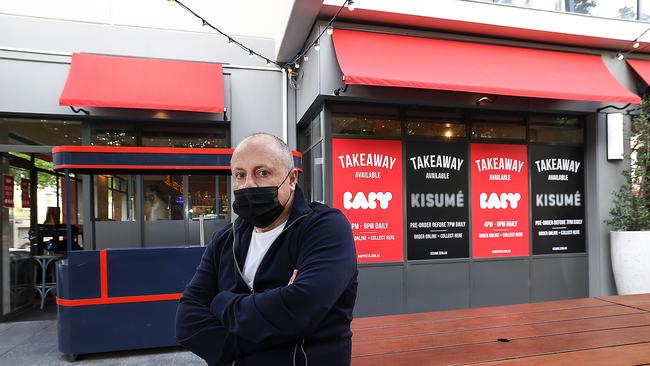Victorian hospitality industry hit with revenues falling by 30 per cent
New data shows the devastating hit Victoria’s hospitality venues have taken due to the extended second lockdown compared with the rest of Australia.

HS Coronavirus News
Don't miss out on the headlines from HS Coronavirus News. Followed categories will be added to My News.
New data shows Victoria’s hospitality industry continues to be devastated by COVID lockdowns, with average revenues plunging by almost a third in September.
Data from more than 7000 venues reveals a 30.5 per cent decrease in average revenue for Victorian venues in September compared with pre-COVID levels in January.
Average revenue in September was down 24.1 per cent compared with the same time last year.
Restaurants have taken the biggest hit compared with pre-COVID levels, with a 44.3 per cent decrease in September compared with January, followed by bars with a 35.4 per cent decrease and cafes, which saw average revenues take a 25.3 per cent hit.
The data compiled by e-commerce software provider Lightspeed shows how the Victorian hospitality industry has been decimated by the second lockdown compared with the rest of the country.

In Western Australia, where cafes, restaurants and bars have been able to serve up to 100 people indoors since early June, average revenue was up 23.4 per cent in September 2020 compared with the same time last year. Revenues last month were up 14.4 per cent compared with pre-COVID levels.
In New South Wales, average revenues were up 8 per cent year-on-year, while in South Australia, average revenues were up 3.5 per cent last month compared with pre-COVID levels but increased 13.8 per cent compared with September 2019.

In a glimmer of hope for the Victorian industry, average revenues in September across all categories showed an 8 per cent increase on the month prior. This reflects regional Victoria moving to the third stage of restrictions in mid September.
Owner of South Yarra’s Botanical Hotel Rabih Yanni said revenue had dropped by 80 per cent and his workforce had halved since pre-COVID and while government support was helpful for an industry so heavily impacted, it “was like applying a Band-Aid to the Titanic”.
“This is by no means about ‘profits before people’,” he said. “We should … apply a level of common sense, look to NSW and discuss the effect this is having on our team, predominantly made up of 20–28 year olds, their mental health, their future and the deteriorating consumer confidence.”
Simon Le Grand from Lightspeed said the hospitality industry had been hit hard by the coronavirus fallout, and nowhere was this more apparent than in Melbourne.
“The unique set of challenges facing venues remain, but fortunately the ‘support local’ movement is strong in Melbourne. While they wait patiently to immerse themselves in dining experiences yet again, locals continue to support venues through takeaway and retail, in an effort to keep the industry alive,” he said.

